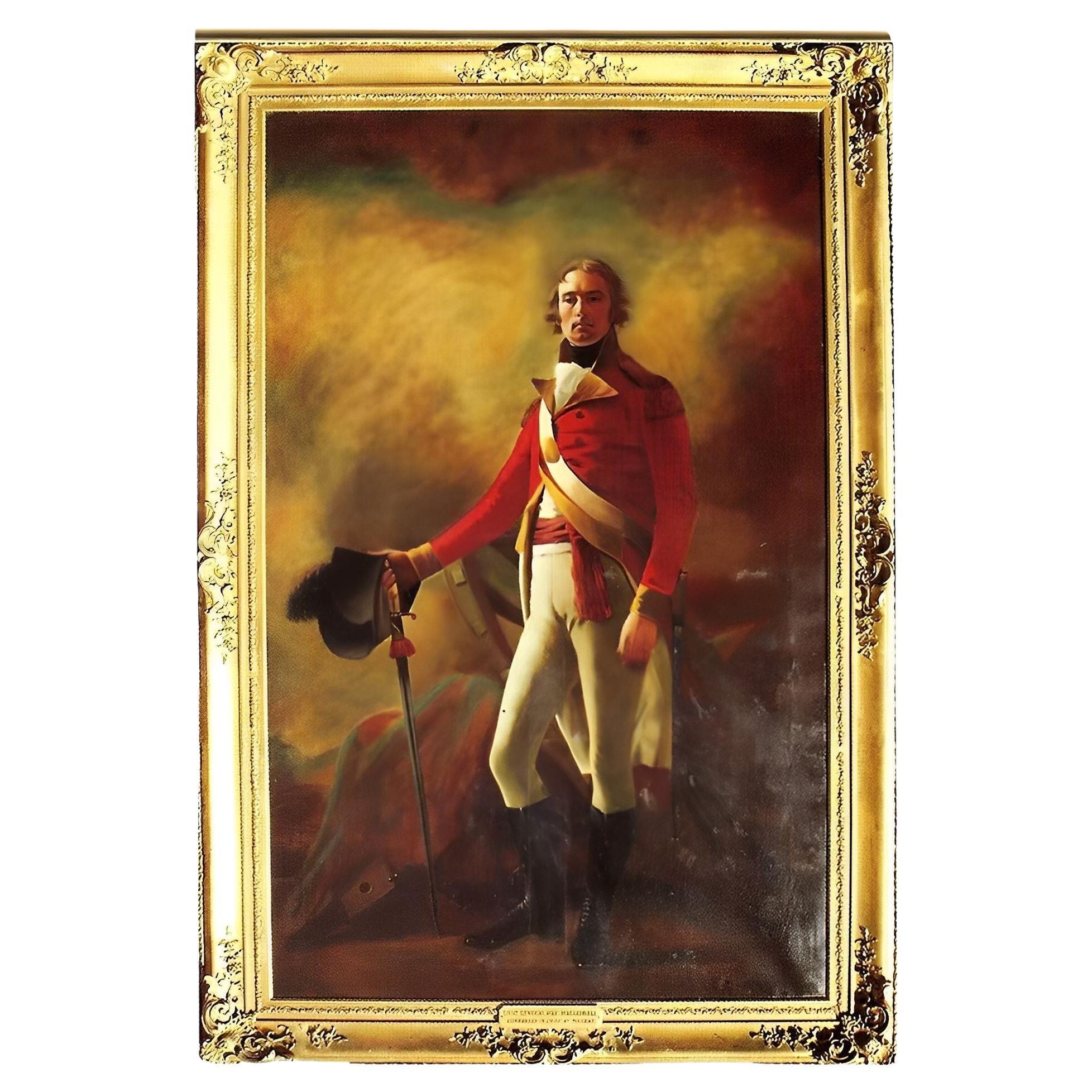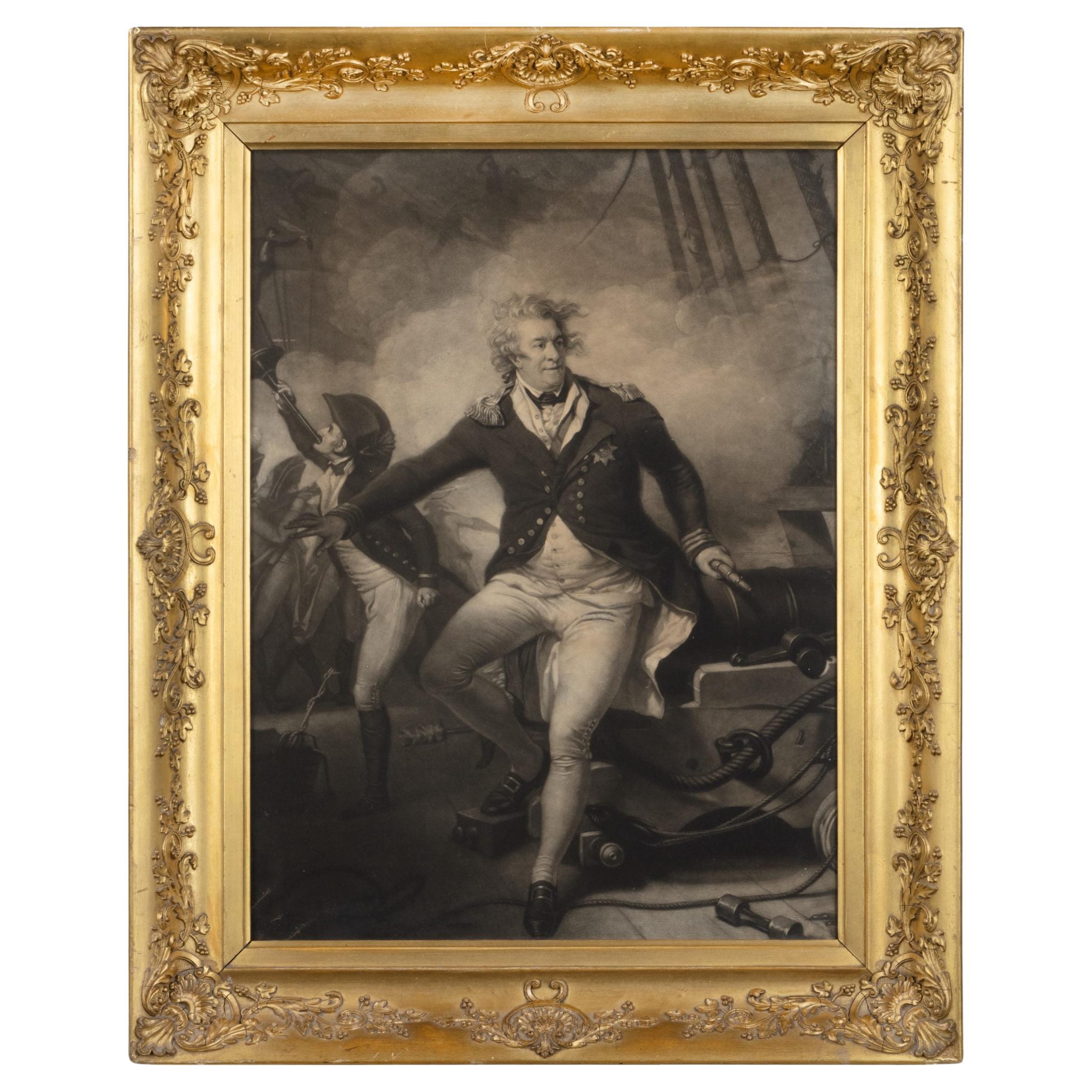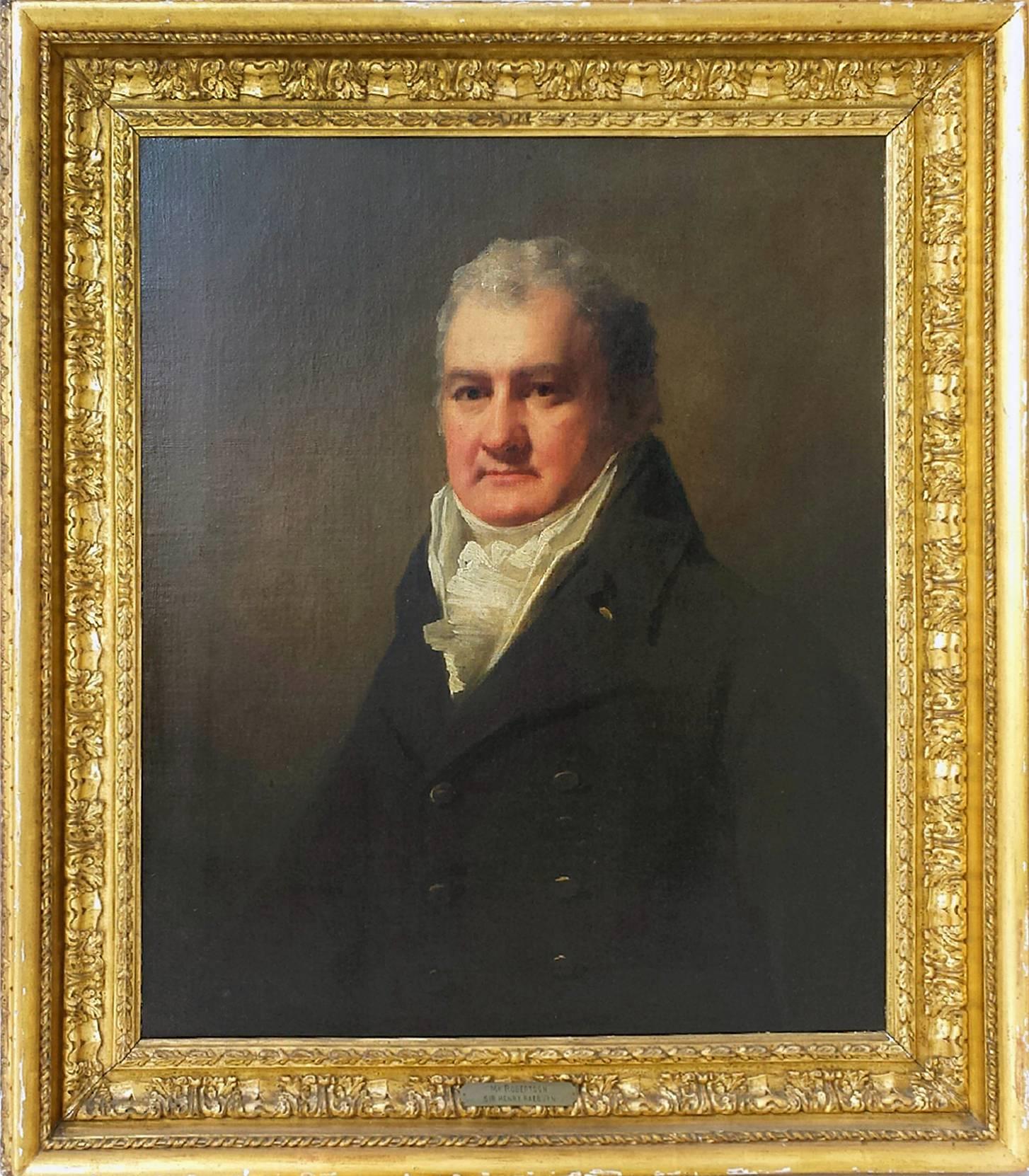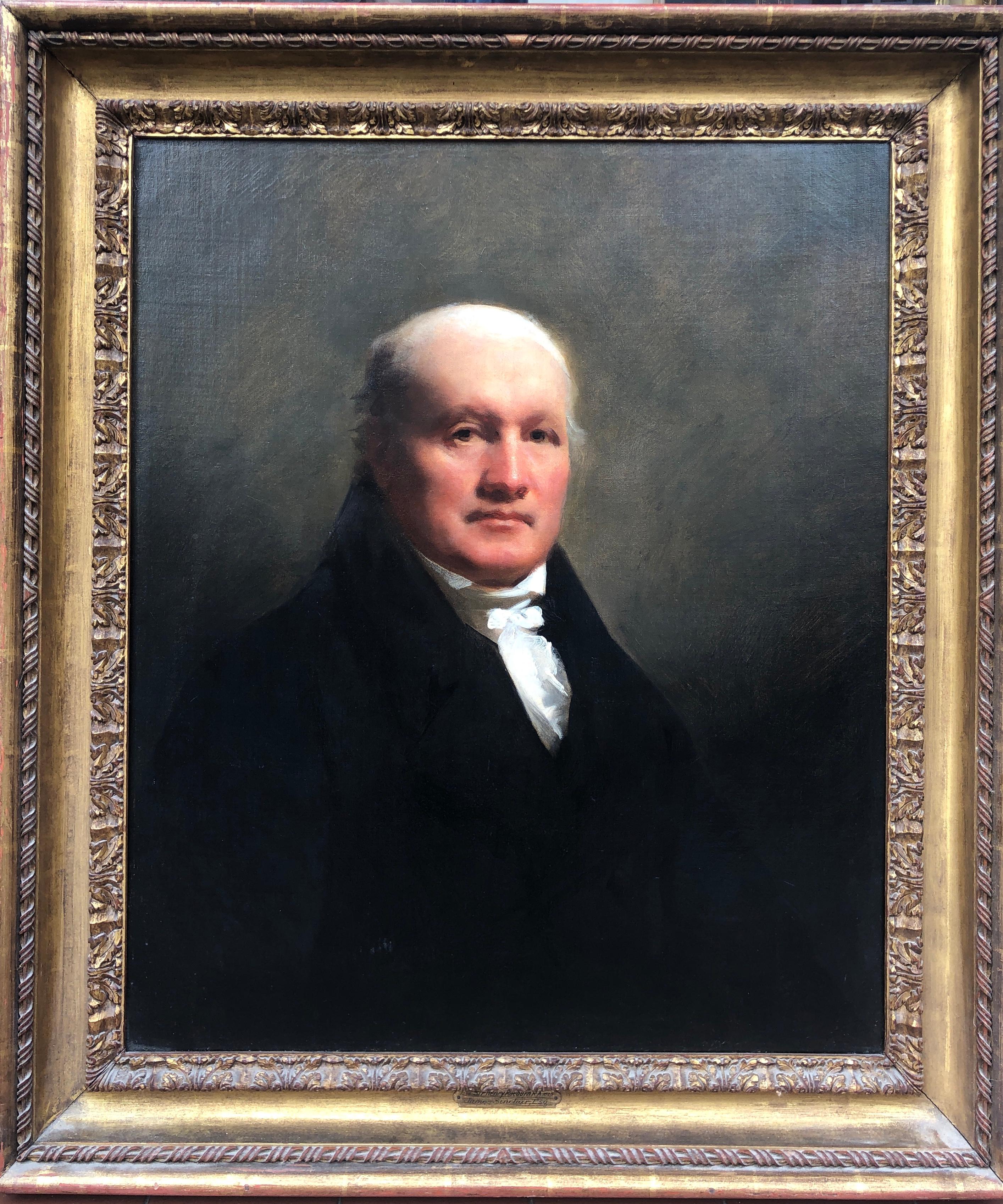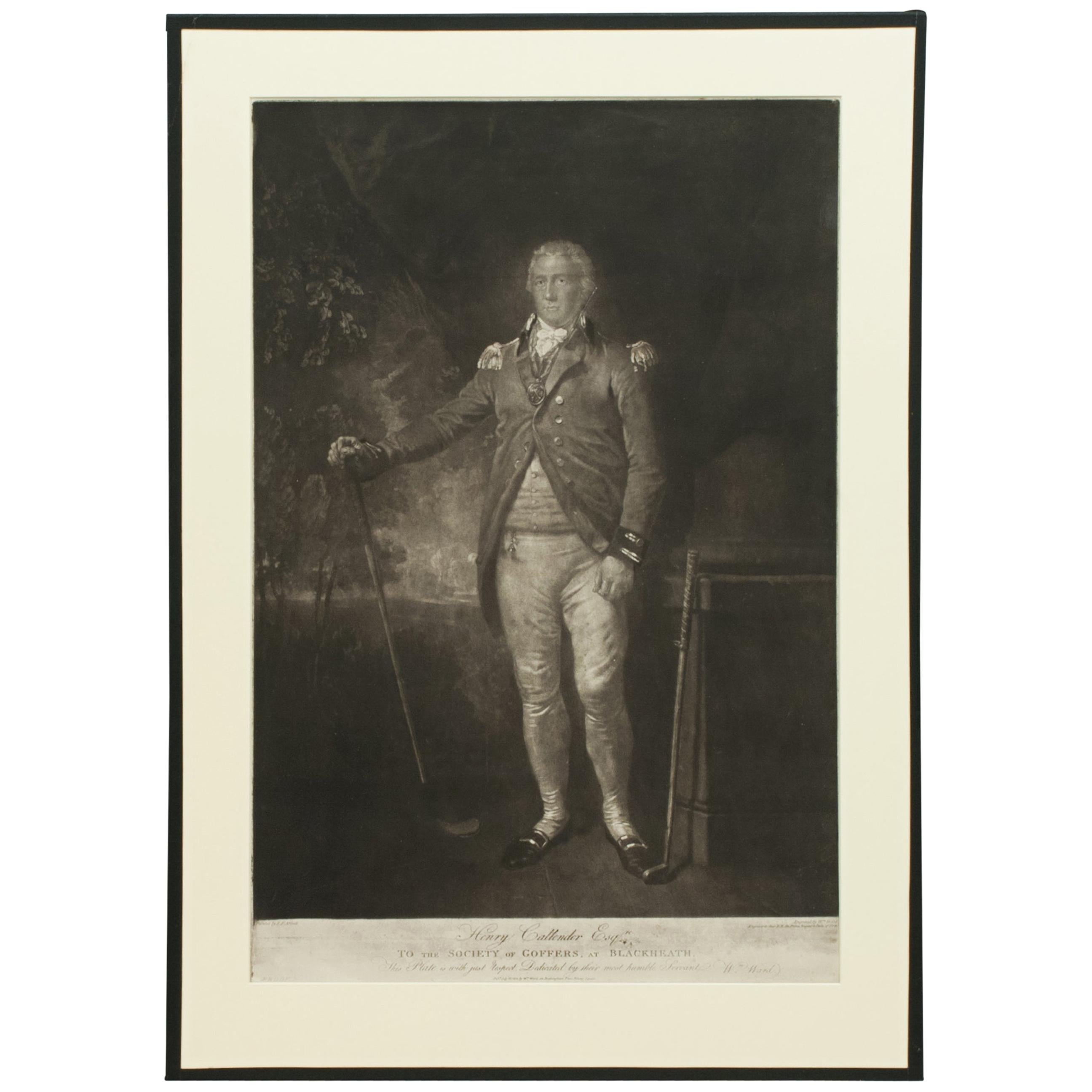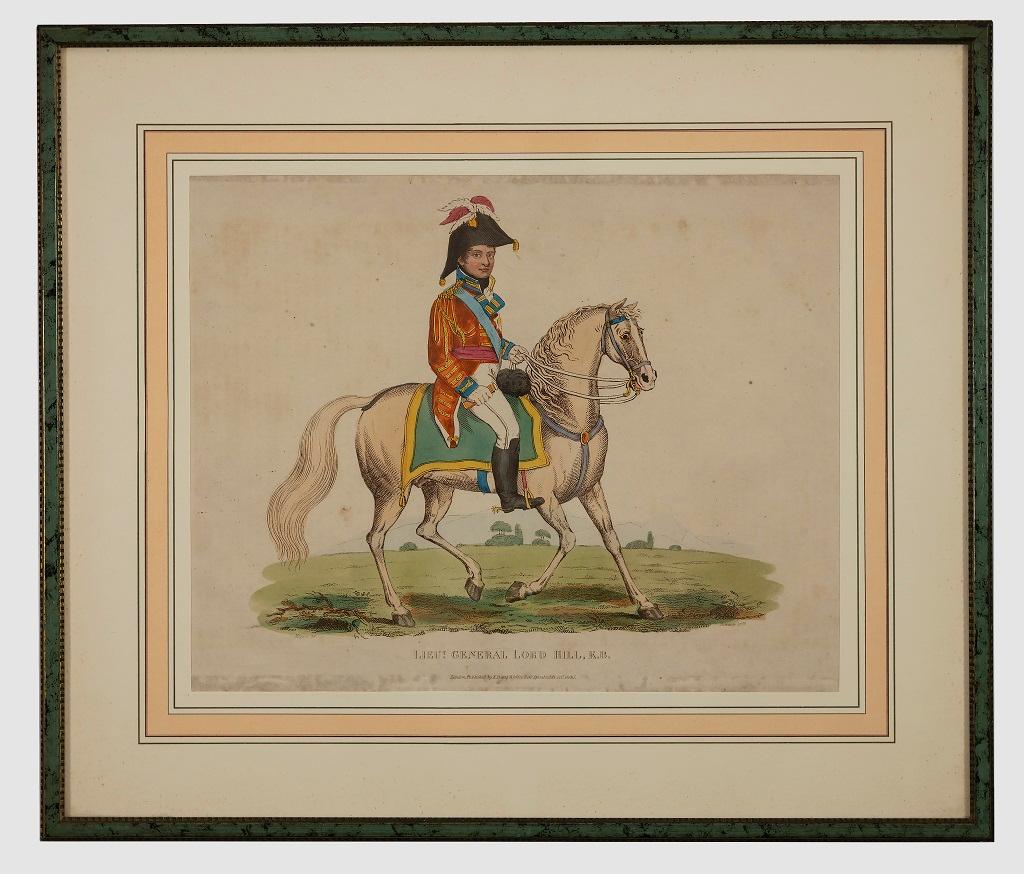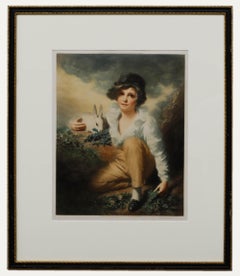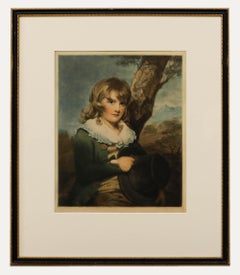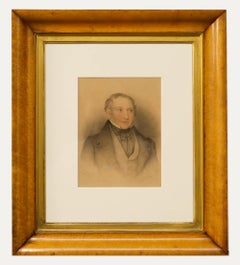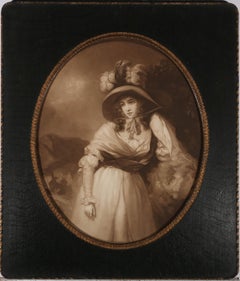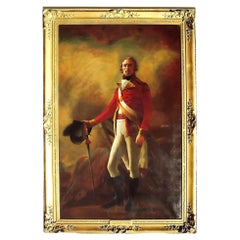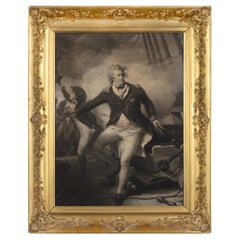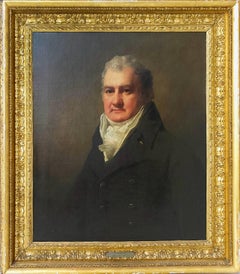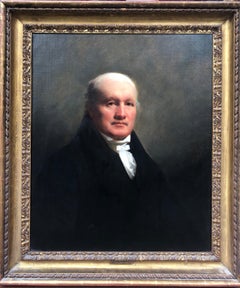Items Similar to Henry MacBeth Raeburn RA RE (1860-1947) - Mezzotint, General Hay MacDowall
Want more images or videos?
Request additional images or videos from the seller
1 of 9
UnknownHenry MacBeth Raeburn RA RE (1860-1947) - Mezzotint, General Hay MacDowallEarly 20th Century
Early 20th Century
$313.60
$39220% Off
£244.95
£306.1820% Off
€277.68
€347.1020% Off
CA$449.58
CA$561.9820% Off
A$493.17
A$616.4620% Off
CHF 258.03
CHF 322.5420% Off
MX$5,869.65
MX$7,337.0620% Off
NOK 3,259.10
NOK 4,073.8720% Off
SEK 3,057.09
SEK 3,821.3720% Off
DKK 2,073.84
DKK 2,592.3020% Off
About the Item
A charming mezzontint after the portrait by Henry MacBeth Raeburn depicting General Hay MacDowall. Hay MacDowall was a Scottish officer in the British Army who was the sixth General Officer Commanding, Ceylon. Signed in graphite and marked with a blindstamp to the lower right. Presented in a gilt frame with acanthus details and a washline mount. On paper.
- Creation Year:Early 20th Century
- Dimensions:Height: 33.86 in (86 cm)Width: 24.02 in (61 cm)
- Medium:
- Period:
- Condition:The condition is typical for a picture of this age including some discolouration. There is some light debris under the glass of the frame.
- Gallery Location:Corsham, GB
- Reference Number:Seller: rv5031stDibs: LU881313141922
About the Seller
4.9
Platinum Seller
Premium sellers with a 4.7+ rating and 24-hour response times
Established in 2010
1stDibs seller since 2018
1,425 sales on 1stDibs
Typical response time: 4 hours
- ShippingRetrieving quote...Shipping from: Corsham, United Kingdom
- Return Policy
More From This Seller
View AllAfter Sir Henry Raeburn RA - Framed 1937 Mezzotint, Boy & Rabbit
Located in Corsham, GB
A fine mezzotint engraving, after an original oil painting by Sir Henry Raeburn RA. Published by Gladwell & Co ltd, London 1937. Mounted in an elegant Hogarth-style frame. Indistinct...
Category
Early 20th Century Portrait Prints
Materials
Mezzotint
Marjorie Bacon (1877-1962) - Framed 1933 Mezzotint, Master John Lock
Located in Corsham, GB
A fine mezzotint engraving, after an original oil painting by Sir Henry Raeburn RA. Published by Henry Graves & Co ltd, London 1933. Mounted in an elegant Hogarth-style frame. On pap...
Category
Early 20th Century Abstract Expressionist Portrait Prints
Materials
Mezzotint
Paul Augustus Mulready (1804-1864) - 1839 Watercolour, Portrait of Grundy Walker
Located in Corsham, GB
A delightful watercolour and pencil study depicting Grundy Walker, brother of Richard Walker M.P. of Notting Hill. Signed, dated and inscribed with location. Part of a pair of portra...
Category
Early 19th Century Portrait Drawings and Watercolors
Materials
Watercolor
Minnie Cormack (1862-1919) After Morland - Mezzotint, Portrait of a Young Lady
By Minnie Cormack
Located in Corsham, GB
A charming portrait mezzotint of a young lady with a well-plumed hat by Minnie Cormack (1862-1919), thought to be after one of a pair of works by George Morland (1763-1804). Wearing ...
Category
Early 20th Century Portrait Prints
Materials
Mezzotint
Mid 19th Century Charcoal Drawing - Sir Henry Roddam Calder (1790-1868)
Located in Corsham, GB
A charcoal and white chalk portrait of Sir Henry Roddam Calder, 5th Baronet of Muirtown (1790-1868). There are some touches of blue chalk to the subject's eyes. Presented glazed in a...
Category
19th Century Portrait Drawings and Watercolors
Materials
Charcoal
$394 Sale Price
20% Off
English School Early 19th Century Watercolour - Portrait of a Gentleman
Located in Corsham, GB
A finely painted full length portrait of a 19th century gentleman, seated in a high back armchair with a slightly perplexed expression. The artist has enhanced the portrait with deli...
Category
Early 19th Century Portrait Drawings and Watercolors
Materials
Watercolor
$376 Sale Price
20% Off
You May Also Like
Monumental Portrait of Lt. General Hay MacDowall by Sir Henry Raeburn, 1805–1815
By Sir Henry Raeburn
Located in Los Angeles, CA
An extraordinary and monumental oil on canvas portrait by renowned Scottish artist Sir Henry Raeburn (1756–1823), depicting Lieutenant General Hay MacDowall in full military regalia....
Category
Antique Early 19th Century Scottish Paintings
Materials
Canvas
Portrait Mezzotint of Admiral Viscount Duncan
By John Raphael Smith
Located in Lymington, Hampshire
This fine impression of the celebrated print engraved by mezzotint engraver John Raphael Smith after a painting by Henry Danloux shows the subject on the deck of a ship in the heat of the Battle Camperdown. It is framed in an ornate giltwood frame with a paper label on the reverse showing a coat of arms flanked by the inscription ‘Admiral Lord Viscount Duncan when Victorious off Camperdown, is by permission most humbly dedicated to the Hon. Miss Jane Duncan by her most obedient Servant H.P.Danloux London. Published by H. P. Danloux No 11 Charles Street, Middlesex Hospital...
Category
Antique Early 1800s English Prints
Materials
Giltwood, Paper
Half Length Portrait of Mr. Robertson of Edinburgh
By Sir Henry Raeburn
Located in Miami, FL
Half Length Portrait of Mr. Robertson
Sir. Henry Raeburn ( Scottish 1756 - 1823 )
Half Length Portrait of Mr. Robertson
29x 24
Purchased, J Leger & Son,...
Category
18th Century Realist Portrait Paintings
Materials
Oil
Striking 18th Century Portrait of the 12th Earl of Caithness
By Sir Henry Raeburn
Located in London, GB
Sir Henry Raeburn (1756-1823)
James Sinclair, 12th Earl of Caithness (1766-1823)
Oil on Canvas
30 X 25 inches Unframed
37 X 32 inches framed
Sir Henry Raeburn FRSE RA RSA (4 March 1756 – 8 July 1823) was a Scottish portrait painter and Scotland's first significant portrait painter since the Union to remain based in Scotland. He served as Portrait Painter to King George IV in Scotland.
Raeburn was born the son of a manufacturer in Stockbridge, on the Water of Leith: a former village now within the city of Edinburgh. He had an older brother, born in 1744, called William Raeburn. His ancestors were believed to have been soldiers, and may have taken the name "Raeburn" from a hill farm in Annandale, held by Sir Walter Scott's family. Orphaned, he was supported by William and placed in Heriot's Hospital, where he received an education. At the age of fifteen he was apprenticed to the goldsmith James Gilliland of Edinburgh, and various pieces of jewellery, mourning rings and the like, adorned with minute drawings on ivory by his hand, still exist. Soon he took to the production of carefully finished portrait miniatures; meeting with success and patronage, he extended his practice to oil painting, at which he was self-taught. Gilliland watched the progress of his pupil with interest, and introduced him to David Martin, who had been the favourite assistant of Allan Ramsay the Latter, and was now the leading portrait painter in Edinburgh. Raeburn was especially aided by the loan of portraits to copy. Soon he had gained sufficient skill to make him decide to devote himself exclusively to painting. George Chalmers (1776; Dunfermline Town Hall) is his earliest known portrait.
In his early twenties, Raeburn was asked to paint the portrait of a young lady he had noticed when he was sketching from nature in the fields. Ann was the daughter of Peter Edgar of Bridgelands, and widow of Count James Leslie of Deanhaugh. Fascinated by the handsome and intellectual young artist, she became his wife within a month, bringing him an ample fortune. The acquisition of wealth did not affect his enthusiasm or his industry, but spurred him on to acquire a thorough knowledge of his craft. It was usual for artists to visit Italy, and Raeburn set off with his wife. In London he was kindly received by Sir Joshua Reynolds, the president of the Royal Academy, who advised him on what to study in Rome, especially recommending the works of Michelangelo, and gave Raeburn letters of introduction for Italy. In Rome he met his fellow Scot Gavin Hamilton, Pompeo Girolamo Batoni and Byers, an antique dealer whose advice proved particularly useful, especially the recommendation that "he should never copy an object from memory, but, from the principal figure to the minutest accessory, have it placed before him." After two years of study in Italy he returned to Edinburgh in 1787, and began a successful career as a portrait painter. In that year he executed a seated portrait of the second Lord President Dundas.
Examples of his earlier portraiture include a bust of Mrs Johnstone of Baldovie and a three-quarter-length of Dr James Hutton: works which, if somewhat timid and tentative in handling and not as confident as his later work, nevertheless have delicacy and character. The portraits of John Clerk, Lord Eldin, and of Principal Hill of St Andrews belong to a later period. Raeburn was fortunate in the time in which he practised portraiture. Sir Walter Scott, Hugh Blair, Henry Mackenzie, Lord Woodhouselee, William Robertson, John Home, Robert Fergusson, and Dugald Stewart were resident in Edinburgh, and were all painted by Raeburn. Mature works include his own portrait and that of the Rev. Sir Henry Moncrieff Wellwood, a bust of Dr Wardrop of Torbane Hill, two full-lengths of Adam Rolland of Gask, the remarkable paintings of Lord Newton and Dr Alexander Adam in the National Gallery of Scotland, and that of William Macdonald of St Martin's. Apart from himself, Raeburn painted only two artists, one of whom was Sir Francis Leggatt Chantrey, the most important and famous British sculptor of the first half of the 19th century. It has recently been revealed that Raeburn and Chantrey were close friends and that Raeburn took exceptional care over the execution of his portrait of the sculptor, one of the painter's mature bust-length masterpieces.
It was commonly believed that Raeburn was less successful in painting female portraits, but the exquisite full-length of his wife, the smaller likeness of Mrs R. Scott Moncrieff in the National Gallery of Scotland, and that of Mrs Robert Bell, and others, argue against this. Raeburn spent his life in Edinburgh, rarely visiting London, and then only for brief periods, thus preserving his individuality. Although he, personally, may have lost advantages resulting from closer association with the leaders of English art, and from contact with a wider public, Scottish art gained much from his disinclination to leave his native land. He became the acknowledged chief of the school which was growing up in Scotland during the early 19th century, and his example and influence at a critical period were of major importance. So varied were his other interests that sitters used to say of him, "You would never take him for a painter till he seizes the brush and palette."
In 1812 he was elected president of the Society of Artists in Edinburgh; and in 1814 associate, and in the following year full member, of the Royal Scottish Academy. On 29 August 1822 he was knighted by George IV and appointed His Majesty's limner for Scotland at the Earl of Hopetoun house. He died in Edinburgh.
Raeburn had all the essential qualities of a popular and successful portrait painter. He was able to produce a telling and forcible likeness; his work is distinguished by powerful characterisation, stark realism, dramatic and unusual lighting effects, and swift and broad handling of the most resolute sort. David Wilkie recorded that, while travelling in Spain and studying the works of Diego Velázquez, the brushwork reminded him constantly of the "square touch" of Raeburn. Scottish physician and writer John Brown wrote that Raeburn "never fails in giving a likeness at once vivid, unmistakable and pleasing. He paints the truth, and he paints it with love".
Raeburn has been described as a "famously intuitive"portrait painter. He was unusual amongst many of his contemporaries, such as Reynolds, in the extent of his philosophy of painting directly from life; he made no preliminary sketches. This attitude partly explains the often coarse modelling and clashing colour combinations he employed, in contrast to the more refined style of Thomas Gainsborough and Reynolds. However these qualities and those mentioned above anticipate many of the later developments in painting of the 19th century from romanticism to Impressionism.
Sir Henry Raeburn died in St Bernard's House (17 St Bernards Crescent), Stockbridge, Edinburgh. He is buried in St. Cuthbert's churchyard against the east wall (the monument erected by Raeburn in advance) but also has a secondary memorial in the Church of St John the Evangelist, Edinburgh.
James Sinclair, 12th Earl of Caithness was born at Barrogill Castle (Castle of Mey) on 31 May 1766. He was the son of Sir John Sinclair of Mey, Baronet who he succeeded in the baronetcy in 1774. He succeeded as 12th earl of Caithness in 1789.
He was lord-lieutenant of the county of Caithness and lieutenant-colonel of the Ross-shire militia.
He married at Thurso Castle on 2 January 1784 Jane, second daughter of Alexander Campbell...
Category
18th Century Portrait Paintings
Materials
Oil
$28,771 Sale Price
40% Off
Free Shipping
Antique Golf Engraving, Henry Callender ESQ, Golf Mezzotint
Located in Oxfordshire, GB
Golf mezzotint of 'Henry Callender Esq' (Captain of the society of Golfers at Blackheath) after Lemuel Francis Abbott (1760-1803).
Henry Callend...
Category
Antique 1810s British Sporting Art Sports Equipment and Memorabilia
Materials
Paper
General Lord Hill - Original Lithograph by John Romney - 1814
Located in Roma, IT
General Lord Hill is an original print realized by John Romney (1786-1863) in the 1814.
Original hand watercolored lithograph .
Title printed on plate on...
Category
1810s Modern Figurative Prints
Materials
Lithograph
More Ways To Browse
British Army
Picasso Portrait Imaginaire
Rauschenberg Plate
Robert Longo Gretchen
Tete De Jeune Fille
Warhol Invitation
Alex Katz Laura
Alex Katz Orange Hat
Andy Warhol Reigning Queens
Andy Warhol Trial Proof
Basquiat Skull
Castelli Invitation
Chris Levine Lightness Of Being
David Blackwood
Foujita Cat
Henri Matisse Pasiphae
Le Petit Prince Vintage
Louis Marin Bonnet
